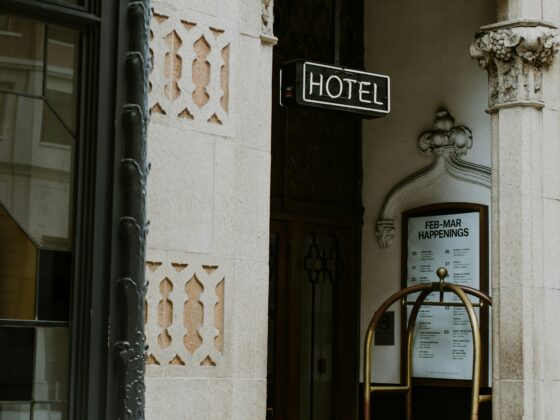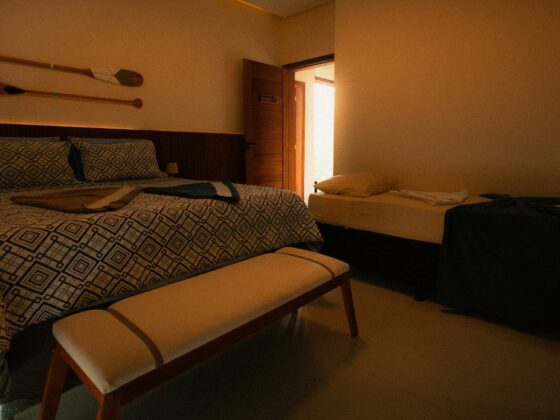
The hotel industry operates in an extraordinarily crowded marketplace where over 450 brands represent 17.5 million rooms under major hotel groups, alongside 14.3 million independent hotel rooms, globally. This proliferation has reached an inflection point, worries over commoditization, which transforms brand differentiation from advantageous to essential for survival.
Current market data from STR, Lodging Econometrics and UNWTO show global and regional hotel groups account for 55% of worldwide accommodation capacity across 750,000 properties, fundamentally altering competitive dynamics and converting traditional differentiators into basic market entry requirements.
Industry Evolution and Structural Forces
The hotel industry transformed between 1980-2000 from locally-owned, asset-heavy operations to globally-scaled, franchise-driven business models. This shift enabled rapid expansion without capital constraints while creating mathematical limitations that artificially drive continued brand proliferation. Historic pioneers like Hilton and InterContinental initially grew through direct ownership, but the strategic pivot toward asset-light models allowed companies to become distribution powerhouses managing thousands of investor-owned properties.
Major consolidations reflected strategic necessity rather than consumer demand. Marriott International’s 2016 acquisition of Starwood Hotels & Resorts created the world’s largest hotel group with 30 brands, while Accor expanded through acquisitions including Fairmont, Raffles and Swissôtel. Franchise territorial protection agreements prevent competing properties from the same brand within defined geographical boundaries, creating artificial demand for new brands once market saturation occurs. This structural limitation forces continued brand multiplication despite limited consumer appetite for additional choice.
Consumer Decision-Making Evolution
Traditional competitive factors—price, location, brand recognition, amenities—no longer differentiate hotel choices but simply determine market-entry qualifications. Digital transformation provides consumers with easy access to massive choice, enabling rapid preference comparison that fundamentally alters competitive dynamics. In virtually any location and price point, travelers now face at least 10 viable options meeting basic criteria, representing a complete reversal from when superior location or competitive pricing could directly drive bookings.
Contemporary hotel selection depends on value perception beyond price, encompassing the relationship between cost and total experience delivered, alongside trustworthiness through transparent pricing and service consistency. Sustainability and purpose increasingly influence booking decisions, particularly as younger demographics gain spending power and become more discerning about environmental responsibility. Experience quality focuses on how stays make guests feel rather than traditional amenity checklists, while booking simplicity emphasizes ease of finding and purchasing exactly what guests want.
Competitive Dynamics Framework
Brand success depends more fundamentally on financial attractiveness to property owners than guest preference alone, as most properties operate under franchise models where owners evaluate brands through economic frameworks comparing brand premiums against total affiliation costs. Property owners assess whether additional revenue generated by brand affiliation justifies conversion costs, ongoing fees, marketing contributions and operational requirements. This calculation determines brand growth potential more decisively than consumer appeal.
Modern hotel competition occurs across multiple dimensions beyond direct property rivalry. The “big five” hotel groups (Marriott, Hilton, IHG, Accor and Hyatt) leverage enormous scale including brand awareness, distribution reach and loyalty ecosystems. However, regional champions demonstrate that penetration creates sustainable competitive advantage without requiring global scale. Outside the U.S., UK’s Premier Inn and Travelodge achieve market leadership through focused penetration, similar to Grecohotels across Greece or Rotana in the UAE.
Distribution power dynamics favor platform intermediaries, with Google, Meta, Booking.com and Expedia controlling first customer contact while hotel industry advertising spending represents only 20% of individual online travel agency budgets. These platforms systematically commoditize hotel brands by emphasising basic attributes rather than unique value
propositions. Alternative lodging providers, particularly Airbnb, permanently altered consumer expectations around space, uniqueness and value, while luxury segments face increasing competition from curated short-term rental collections.
Strategic Differentiation Approaches
Experience and Lifestyle Leadership
Moving beyond transactional accommodation toward experience-led value propositions represents the most significant differentiation opportunity. This approach creates emotional connections that support pricing premiums and guest loyalty while moving beyond commoditized amenity comparisons. Successful implementation requires authentic brand identity resonating with specific target segments, consistent delivery across touchpoints and operational capabilities supporting experience promises without unsustainable cost increases.
Owner Value Proposition Enhancement
Optimizing franchise economics requires balancing conversion costs, operational requirements and brand standards with achievable revenue premiums that create attractive unit-level returns. Growth strategies should prioritize deep market penetration before expanding to new regions, leveraging local market power and creating synergies between destination and source markets for demand generation.
Personalized Loyalty Evolution
Traditional points-based loyalty programs require transformation toward experience-led, personalized engagement that create genuine emotional connection rather than transactional relationships. Advanced guest data utilization enables tailored offers, recognition and flexible rewards across brands and stay occasions, while seamless integration across direct-booking
channels creates comprehensive engagement ecosystems that reduce dependence on commission-based third-party distribution.
Digital Distribution Excellence
Winning digital competition requires significant investment in direct booking incentives, loyalty benefits and mobile-first experiences that compete effectively with online travel agency convenience. Strategic partnerships and technology investments must focus on controlling customer relationships and reducing commission-based bookings while maintaining competitive visibility. Success requires understanding that intermediaries exploit brand confusion to generate revenue through placement fees.
Sustainability as Core Differentiation
Environmental and social responsibility increasingly influence booking decisions, with younger demographics becoming more discerning about sustainability expectations as they gain spending power. Modern guests are fundamentally values-conscious, seeking brands that align with personal beliefs through shared principles rather than superficial marketing. Authentic sustainability programs integrating environmental stewardship, community engagement,and transparent impact reporting create differentiation opportunities while supporting cost reduction through operational efficiency.
Regional Localization Strategy
Adapting propositions to local cultural expectations while maintaining global brand standards creates competitive advantage through balanced approaches that ensure both international travelers and local guests find compelling value. The key lies in recognizing not just where properties operate but understanding geographic demand sources and adapting accordingly
while maintaining operational standards that support brand integrity.
Implementation Success Factors
Effective brand differentiation demands alignment between strategic vision, operational capability and market positioning that most hospitality companies find challenging to achieve. Market-driven brand positioning through comprehensive research ensures differentiation strategies address genuine market needs rather than internal assumptions. Owner economics optimization requires balancing investment requirements with achievable returns, ensuring property owners generate attractive profits while maintaining brand standards.
Cross-functional organizational coordination between traditionally independent teams becomes essential for supporting brand promises through consistent delivery. Modern technology infrastructure supporting personalized experiences and data-driven decision-making represents fundamental requirements for competitive differentiation. Sophisticated measurement frameworks tracking both financial performance and brand equity development enable continuous optimization based on actual market response.
Conclusion
Brand proliferation represents both unprecedented challenges and significant opportunities for companies developing sophisticated differentiation strategies. Success requires understanding that differentiation operates simultaneously across guest experience, owner economics, operational excellence and technological capability while maintaining authentic positioning that resonates with specific target markets. The battle shifts from “who has the most rooms” to “who owns the customer and creates differentiated value at scale.”
Companies that control distribution, deliver unique experiences and create loyalty through personalization and sustainability while proving demonstrable value to property owners will define the industry’s competitive landscape. As demonstrated in our previous analysis, “Why Customer Experience Is the Growth Engine Hotels Can’t Ignore,” experience excellence drives revenue, pricing power and operational efficiency. The integration of brand differentiation with experience transformation represents the most powerful pathway to sustainable competitive advantage in today’s challenging market environment.
Story contributed by Tim Davis, managing director of PACE Dimensions, a travel and hospitality consultancy based in the U.K.






